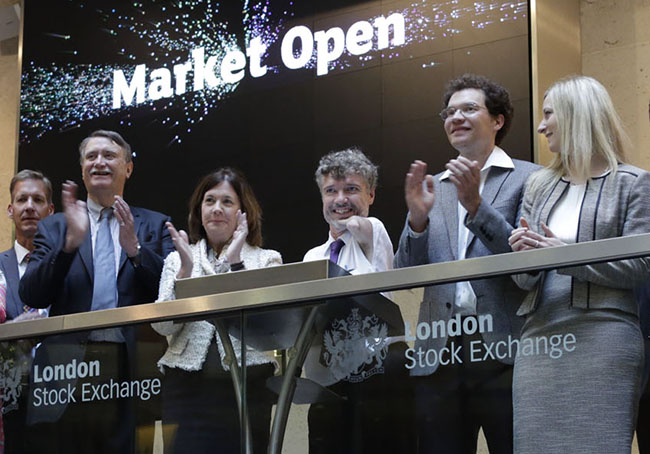 BBC TV’s Holby City actor Jules Robertson joined forces with leading figures from some of the UK’s largest public and private sector organisations at the London Stock Exchange to launch Purple – a new organisation set on improving employment opportunities for people with disabilities.
BBC TV’s Holby City actor Jules Robertson joined forces with leading figures from some of the UK’s largest public and private sector organisations at the London Stock Exchange to launch Purple – a new organisation set on improving employment opportunities for people with disabilities.
The actor, who recently played Jason Haynes, a young man with Aspergers in the hospital series, encouraged businesses to “think outside the box and hire people who think differently” as part of their employment strategies.
He said: “What makes me different from other actors is that I’m autistic. Life can be hard for autistic people, we want to work, we need to work, but it’s really difficult to get a job despite the fact that our brains are unique.
“Autistic people have amazing talents: some are very good with figures; some have very high IQ’s.
“They could add value to your business, and a job would help them value themselves.
“I can’t tell you how liberating it is to be finally earning a wage.
“Until recently my current account reminded me of all the girls I try to chat up – not showing the slightest interest.
“So it’s absolutely great to finally be able to tell my money where to go instead of wondering where it went.
“I encourage you to think outside the box and hire people who think differently, and who think laterally. So be brave, take a gamble by employing us. You won’t regret it”.
New research shows almost half of UK businesses (45%) are apprehensive about hiring someone with a disability because of fears they won’t be able to do the job.
One in five business owners and hiring managers admit they are worried about interviewing someone with a disability in case they do or say the wrong thing.
Fears include using the incorrect terminology (32%) and not knowing whether they should help with things such as opening doors or pulling out chairs (38%).
One in five employers said falling foul of discrimination law was a real concern.
Disabled people already fall significantly behind the rest of the population when it comes to the majority of wellbeing standards.
Of the UK’s 11.5 million disabled people, just 49% are currently in work, compared to 82% of non-disabled people.
Purple aims to help more than 20,000 disabled people to find permanent jobs over the next decade, while simultaneously matching 25,000 personal assistants to disabled employers.
Purple’s chief executive, Mike Adams, said: “We’ve always known that being disabled means you’re more likely to be unemployed and this has a real impact on both the career opportunities and quality of life.
“What this latest research tells us is that in fact it isn’t disability that’s the barrier to finding employment, but the worries and misconceptions of business owners themselves.
“This isn’t just a barrier for disabled people, but for many businesses missing out on valuable employee skills and talent, as well as powerful consumer opportunity.
“With Purple we are taking a new, brave and bold approach to the problem.
“We want to work with business to address concerns whilst upskilling individuals to seize the opportunities available.
“We will give business and individual an equal voice and by not being afraid to tackle the issues on both sides we will change the conversation on disability employment.”
Seamus Nevin, Head of Employment and Skills Policy at the Institute of Directors, said:
“The dignity of a job and the assurance of a pay cheque should be available to all who aspire to it. The IoD and our members welcome the support Purple will offer to employers taking steps to bring more disabled people into the workforce and help them share in the opportunities that a job provides. ”
The benefits to businesses in creating a diverse workforce are huge, with the disability market, or ‘Purple Pound’ in the UK worth £212bn a year. For wider society, just five percentage point increase in the disability employment rate would lead to an increase in GDP of £23bn by 2030.

